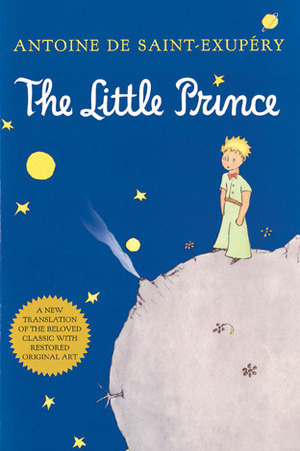Title: A Timeless Tale of Wisdom and Innocence: "The Little Prince" by Antoine de Saint-Exupéry
"The Little Prince" by Antoine de Saint-Exupéry is a whimsical and philosophical novella that enchants readers with its timeless charm and profound insights. Originally published in 1943, this beloved classic transcends age and culture, captivating hearts with its whimsy and piercing observations about human nature.
The story begins with an aviator stranded in the Sahara Desert, where he encounters a young boy—the Little Prince. As the Little Prince recounts his adventures traveling from planet to planet, meeting a cast of peculiar characters, the novella unfolds into a poignant exploration of friendship, love, and the pursuit of a meaningful life.
One of the novel's enduring strengths lies in its ability to speak to both children and adults. On the surface, the narrative is a simple and enchanting tale of a boy's adventures among the stars. However, beneath the surface, Saint-Exupéry weaves a rich tapestry of philosophical reflections on the complexities of the adult world.
The Little Prince's encounters with characters on various planets serve as allegories that reflect the quirks and foibles of human nature. From the conceited king to the vain rose, each character imparts a lesson about life, love, and the pursuit of happiness. These encounters become a metaphorical mirror held up to society, offering gentle criticism and prompting readers to reflect on their own lives.
Central to the novella is the theme of innocence and the loss thereof as one grows older. The contrast between the pure, untainted perspective of the Little Prince and the jaded views of the adults he encounters serves as a powerful commentary on the complexities of adulthood and the importance of retaining a childlike wonder.
The prose is lyrical and evocative, enhanced by Saint-Exupéry's own whimsical illustrations that bring the characters and scenes to life. The simplicity of the language belies the depth of the philosophical musings, making the novella accessible to readers of all ages and backgrounds.
"The Little Prince" is a celebration of the imagination and a poignant reminder of the importance of seeing the world through the eyes of a child. Its enduring popularity lies in its ability to touch the human spirit, prompting reflection on what truly matters in life and the profound connections that transcend the boundaries of time and space.
In conclusion, "The Little Prince" is a timeless masterpiece that continues to resonate with readers worldwide. Antoine de Saint-Exupéry's fable, with its enchanting narrative and profound wisdom, stands as a testament to the enduring power of storytelling and the capacity of literature to capture the essence of the human experience.

Comments
Post a Comment